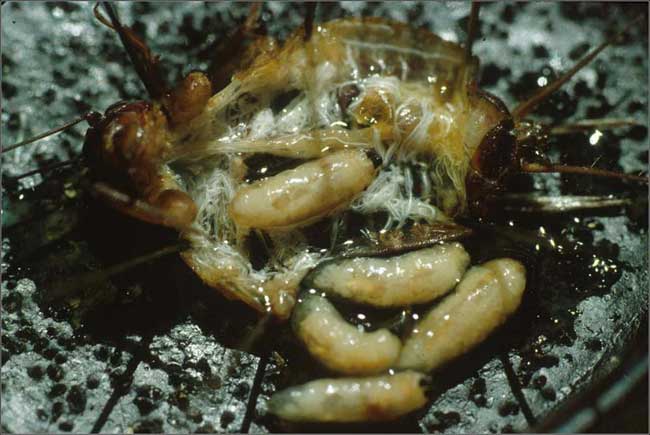Cricket's Chirp Attracts Sex and Death

Get the world’s most fascinating discoveries delivered straight to your inbox.
You are now subscribed
Your newsletter sign-up was successful
Want to add more newsletters?

Delivered Daily
Daily Newsletter
Sign up for the latest discoveries, groundbreaking research and fascinating breakthroughs that impact you and the wider world direct to your inbox.

Once a week
Life's Little Mysteries
Feed your curiosity with an exclusive mystery every week, solved with science and delivered direct to your inbox before it's seen anywhere else.

Once a week
How It Works
Sign up to our free science & technology newsletter for your weekly fix of fascinating articles, quick quizzes, amazing images, and more

Delivered daily
Space.com Newsletter
Breaking space news, the latest updates on rocket launches, skywatching events and more!

Once a month
Watch This Space
Sign up to our monthly entertainment newsletter to keep up with all our coverage of the latest sci-fi and space movies, tv shows, games and books.

Once a week
Night Sky This Week
Discover this week's must-see night sky events, moon phases, and stunning astrophotos. Sign up for our skywatching newsletter and explore the universe with us!
Join the club
Get full access to premium articles, exclusive features and a growing list of member rewards.
The chirps of crickets are love songs that males sing to entice females, but that is not all they attract. Chirping at times can lure doom, drawing parasitic flies that infest crickets with larvae, new research shows.
The parasites, called Ormia ochracea, burrow into their amorous hosts and then, after a week or so of feeding on organs, tear their way out, killing the cricket as they emerge. Researchers have known this for some time, and in fact it has caused the wings of one species of cricket, in Hawaii, to evolve to the point that they cannot produce the traditional mating sound.
Scientists now find the danger posed by the parasites can rewire cricket love lives, drastically altering how males sing and females respond when parasites are around.
"It's a complex tradeoff we see here. If you're a male and don't sing, you're less likely to get females but more likely to live longer, and if you do sing, you attract both females and parasites," explained animal behaviorist Jane Brockmann at the University of Florida at Gainesville.
"There's no free lunch, I guess," Brockmann told LiveScience.
Thanks, no thanks
In experiments with wild crickets native to northern Florida, Brockmann and her colleague Manuel Vélez captured males, placed them in containers in the field, and recorded them during the spring and fall. They also surveyed free singing males in a pasture during both seasons.
Get the world’s most fascinating discoveries delivered straight to your inbox.
In northern Florida, the parasitic flies are present only in the fall, never in the spring. The researchers found cricket songs apparently followed this schedule—75 percent of the captured males sang in the spring, compared to only 43 percent in the fall.
Experiments with female crickets captured either during the spring or fall that had recordings of male songs played at them revealed similar findings.
During mating, female crickets can be quite overt, actually mounting the males. "The spring females are extremely eager. The minute they hear a male singing, they race over to the speaker," Brockmann said.
But the fall females are much more hesitant. "They take longer and seem reluctant to approach the speaker," Brockmann said, suggesting they are trying to avoid becoming targets for the flies themselves.
Survival vs. sex
Not all of the findings were clear-cut. Often, male crickets never sang, but nevertheless found mates by simply wandering about until they encountered females, begging the question of why they might sing at all.
In addition, while fewer males sang in the fall, the ones that did sang far longer. This placed those males at even greater jeopardy of getting parasitized, but Brockmann suggested it could also help male singers to mate far more often. In other words, singing may be risky, but its benefits could at times outweigh both its risks and the benefits of not singing.
These findings shed light on the powerful conflict between natural selection pressures, or the capability to survive, and sexual selection pressures, or the capability to mate.
"We're interested in understanding how animals adapt in the face of these pressures, because it's very difficult to predict what the outcome will be," Brockmann explained.
The researchers reported their findings in the November issue of the journal Ethology and the August issue of the journal Animal Behaviour.
- The Weirdest Science Stories of 2006
- Mating Game: The Really Wild Kingdom
- Well-fed Crickets Seek Sex Incessantly, Die Young
- Amazing Animal Abilities

 Live Science Plus
Live Science Plus










